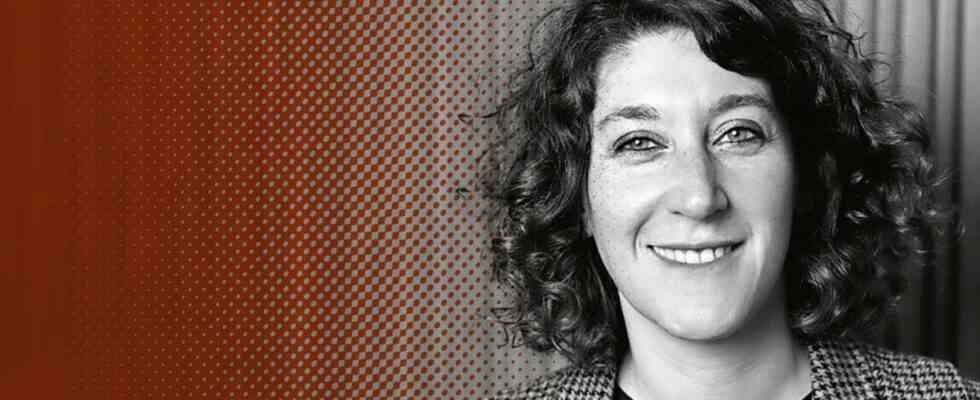Lena Gorelik, born in Leningrad in 1981, lives in Munich and is the author of novels and non-fiction. “Who we are” was published last year, the story of a family whose members came to Germany from Russia in the 1990s as “quota refugees”.
SZ: What are you reading right now?
Lena Gorelik: I read – for the second time – “According to memory” by Maria Stepanova. For the second time: that says it all. This is a book that you don’t just read, you have to think about it, you’re allowed to read it. You have to linger over each sentence, in terms of content and language. I read it in small pieces, concentrated, it’s the opposite of “devour”.
What was the last really good book you read?
That’s quick: “153 forms of non-being” by Slata Roshal. It’s a prose debut and it made a tremendous impression on me. Because it plays with the form, because it collects lists, e-mails, notes, small and large scenes, quotes, it tells in 153 miniatures, tells freely, incredibly directly and interweaves themes: A young woman talks about her migration experience, from of her becoming a mother, of her becoming a woman, of the ideas of others and, incidentally, of us as a society.
Which classic did you read far too late in life?
“A Room of Your Own” by Virginia Woolf. And was amazed at how much of what we still talk about today, what we still denounce today, she already named almost 100 years ago.
What book do you hate but love the author?
“A Woman” by Péter Esterházy, whom I appreciate very much in his exploration of the family, of historical context, for his humorous, and at the same time very political view of the world, for his pointed observations. But these 97 male glances at one, at the woman, fail me.
Which book explains the whole world best for you?
“Holidays on Saltkrokan” by Astrid Lindgren. In general, Lindgren knows how to grasp the whole world for me. I hold on to her with all my strength, to this, my first great, unforgettable love of books and writers. In “Ferien auf Saltkrokan”, which is better known as a film in this country, but which I sometimes read three or four times in a row as a child, she combines the whole range of emotions: It’s not far from happiness to sadness, not even from love to loss, not even from “in the past”, from what shapes you to today. The beauty of Lindgren’s books is that they don’t explain the world. But she packs them in a bundle of feelings.
How many more novels does humanity need?
Still very, very many. Although all the stories have already been told, all the small and big feelings, relationships and entanglements. But by no means from all perspectives, from all languages, by no means in all forms, each of which opens up a new world (even if the image is a cliché), which makes a new experience of thinking and understanding possible. I don’t want to be part of a humanity that no longer needs novels.
In February you made several statements about the Russian war of aggression in Ukraine. Why are you quiet now?
I have on Beginning of the war of impotence, the shock, the despair wanting to give a voice, have to; since the first refugees from Ukraine came, I have tried to support as many as possible, to provide concrete help – that seems to me more urgent than writing. Writing has to have a meaning, has to explain something, has to contribute, to be able to broaden perspectives; I’m just looking for a perspective like this.
Read more episodes of the interview column here.

